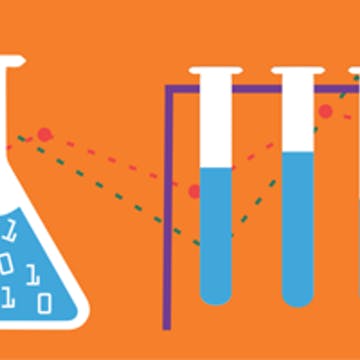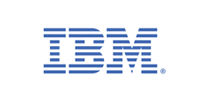
Apesar do recente aumento do poder da computação e do acesso a dados nas últimas décadas, nossa capacidade de usar os dados em um processo de decisão é frequentemente perdida ou não maximizada. Não temos uma compreensão sólida da pergunta que está sendo feita e como aplicar os dados corretamente à questão.
Este curso busca compartilhar uma metodologia que possa ser usada dentro da ciência de dados, para garantir que os dados usados em resoluções de problemas sejam relevantes e devidamente operados.
Assim, neste curso, você aprenderá:
- As principais etapas da resolução de problemas de ciência de dados.
- As principais...
Read more
Good to know
Save this course
Reviews summary
Data science problem solving
Activities
Review foundational data science concepts
Show steps
Before starting the course, refresh your understanding of foundational data science concepts to ensure a solid foundation for learning more advanced topics.
Browse courses on
Statistics
Show steps
-
Review lecture notes or textbooks from previous courses
-
Complete practice problems or online quizzes to test your understanding
Create a personal knowledge base
Show steps
Compile all materials, including video transcripts, lecture notes, and assigned readings, into a single, easily accessible repository to streamline future review.
Show steps
-
Organize files and materials into a logical structure
-
Review material for completeness and understanding
Form a study group
Show steps
Meet regularly with classmates to discuss concepts, work on assignments, and quiz each other, providing opportunities for collaborative learning and reinforcement.
Show steps
-
Find like-minded peers with complementary strengths
-
Establish a regular meeting time and place
Four other activities
Expand to see all activities and additional details
Show all seven activities
Explore online data science tutorials
Show steps
Seek out and complete online tutorials that cover specific data science concepts and techniques, providing hands-on experience and reinforcing classroom learning.
Browse courses on
Data Visualization
Show steps
-
Identify areas where you need additional support
-
Find high-quality tutorials from reputable sources
-
Follow the tutorials step-by-step and complete the exercises
Contribute to open source data science projects
Show steps
Participate in open-source data science projects to gain practical experience, collaborate with others, and contribute to the community while enhancing your skills.
Browse courses on
Data Science
Show steps
-
Identify open-source projects that align with your interests
-
Review the project documentation and identify ways to contribute
-
Submit pull requests with your contributions
Solve data science practice problems
Show steps
Complete a set of data science practice problems to test your understanding of concepts and algorithms, identify areas for improvement, and enhance your problem-solving skills.
Browse courses on
Data Analysis
Show steps
-
Find a collection of practice problems aligned with the course topics
-
Attempt to solve the problems independently
-
Review your solutions and identify areas where you can improve
Build a data science portfolio
Show steps
Create a portfolio of data science projects that demonstrate your skills and knowledge, providing tangible evidence of your abilities to potential employers or clients.
Browse courses on
Data Visualization
Show steps
-
Identify a real-world problem or dataset to work on
-
Apply data science techniques to solve the problem or analyze the data
-
Develop a clear and concise presentation of your findings
Review foundational data science concepts
Show steps
Before starting the course, refresh your understanding of foundational data science concepts to ensure a solid foundation for learning more advanced topics.
Browse courses on
Statistics
Show steps
- Review lecture notes or textbooks from previous courses
- Complete practice problems or online quizzes to test your understanding
Create a personal knowledge base
Show steps
Compile all materials, including video transcripts, lecture notes, and assigned readings, into a single, easily accessible repository to streamline future review.
Show steps
- Organize files and materials into a logical structure
- Review material for completeness and understanding
Form a study group
Show steps
Meet regularly with classmates to discuss concepts, work on assignments, and quiz each other, providing opportunities for collaborative learning and reinforcement.
Show steps
- Find like-minded peers with complementary strengths
- Establish a regular meeting time and place
Explore online data science tutorials
Show steps
Seek out and complete online tutorials that cover specific data science concepts and techniques, providing hands-on experience and reinforcing classroom learning.
Browse courses on
Data Visualization
Show steps
- Identify areas where you need additional support
- Find high-quality tutorials from reputable sources
- Follow the tutorials step-by-step and complete the exercises
Contribute to open source data science projects
Show steps
Participate in open-source data science projects to gain practical experience, collaborate with others, and contribute to the community while enhancing your skills.
Browse courses on
Data Science
Show steps
- Identify open-source projects that align with your interests
- Review the project documentation and identify ways to contribute
- Submit pull requests with your contributions
Solve data science practice problems
Show steps
Complete a set of data science practice problems to test your understanding of concepts and algorithms, identify areas for improvement, and enhance your problem-solving skills.
Browse courses on
Data Analysis
Show steps
- Find a collection of practice problems aligned with the course topics
- Attempt to solve the problems independently
- Review your solutions and identify areas where you can improve
Build a data science portfolio
Show steps
Create a portfolio of data science projects that demonstrate your skills and knowledge, providing tangible evidence of your abilities to potential employers or clients.
Browse courses on
Data Visualization
Show steps
- Identify a real-world problem or dataset to work on
- Apply data science techniques to solve the problem or analyze the data
- Develop a clear and concise presentation of your findings
Career center
Data Scientist
Data Analyst
Machine Learning Engineer
Data Engineer
Business Analyst
Operations Research Analyst
Statistician
Actuary
Epidemiologist
Data Governance Analyst
Quantitative Analyst
Market Researcher
Data Architect
Technical Writer
User Experience Researcher
Reading list
Share
Similar courses
OpenCourser helps millions of learners each year. People visit us to learn workspace skills, ace their exams, and nurture their curiosity.
Our extensive catalog contains over 50,000 courses and twice as many books. Browse by search, by topic, or even by career interests. We'll match you to the right resources quickly.
Find this site helpful? Tell a friend about us.
We're supported by our community of learners. When you purchase or subscribe to courses and programs or purchase books, we may earn a commission from our partners.
Your purchases help us maintain our catalog and keep our servers humming without ads.
Thank you for supporting OpenCourser.



